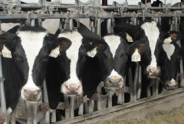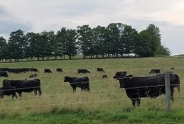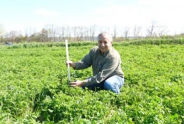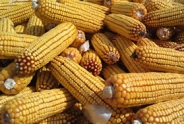Black Cutworm
Kevin Ganoe, Area Field Crop Specialist
Central New York Dairy and Field Crops
Starting to see some black cutworm activity around the state and I found this one digging around a corn field yesterday with several plants cutoff. I and others have been finding significant moth catches in our pheromone traps so there are certainly adults around to lay eggs.
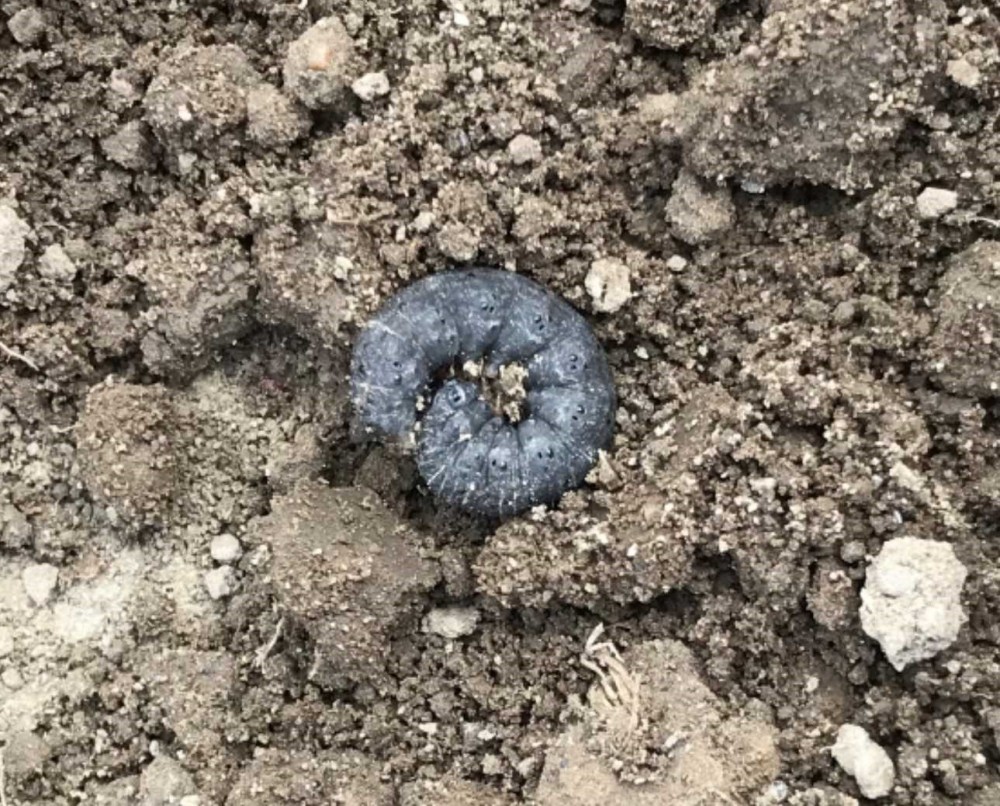
Black cutworm feeding may include a plant cutoff or the top part of the plant dragged back down into the soil. Plants may also appear wilted with feeding taking place below the soil surface. A good time to dig around where plants appear to be missing.
Any corn field could have black cutworms but some fields tend to be more at risk:
fall plowed - problem less likely
late spring plowed - problem more likely
corn following beans - problem more likely
late planted - problem more likely
minimum tillage - problem more likely
Reference: https://extension.entm.purdue.edu/fieldcropsipm/insects/black-cutworms.php
Threshold is 5% or greater of plants cut.
For more info on black cutworm scouting and control:
Upcoming Events
New York State Fiber Conference
June 9, 2024
Bouckville, NY
Theme for this year: Quality Matters
Announcements
Cash Rent and Custom Harvest Survey
To date, there is limited information available about rental rates and fees for crop harvesting. Farms can use this valuable information for their farm business planning to help improve decision making and profitability.Farmers Can Join MeatSuite For Free!
MeatSuite.com is a free resource provided by Cornell University where NY meat farmers can create a farm profile and list their bulk (wholes, halves, quarters) and bundled (i.e. Grilling Bundle) meat products.Why should farmers join?
1. It's free and easy!
2. Connect with more local customers. In the past year the MeatSuite.com farm directory had 8,300 visits from New York consumers. Farm profiles get as many as 25 views per month from potential local customers. We also spotlight MeatSuite farms on social media and bring attention and purchases to farms through highlights and giveaways.
How do I join?
Farmers can visit https://www.meatsuite.com/farmers/ to create a free farm profile. You must list at least one product for your farm's profile to go live. You'll also have access to Cornell's free Meat Price Calculator, a helpful tool for pricing your meat to make a profit.
While you're on MeatSuite, check out the "Creating Consumer-Friendly Bulk Meats" publication on the log-in page. It has tips on how to create bulk meat products that are easier for first-time buyers to say "yes" to.
If you have any questions as you create your farm profile or products, we're here to help! Please email Matt LeRoux at mnl28@cornell.edu.

